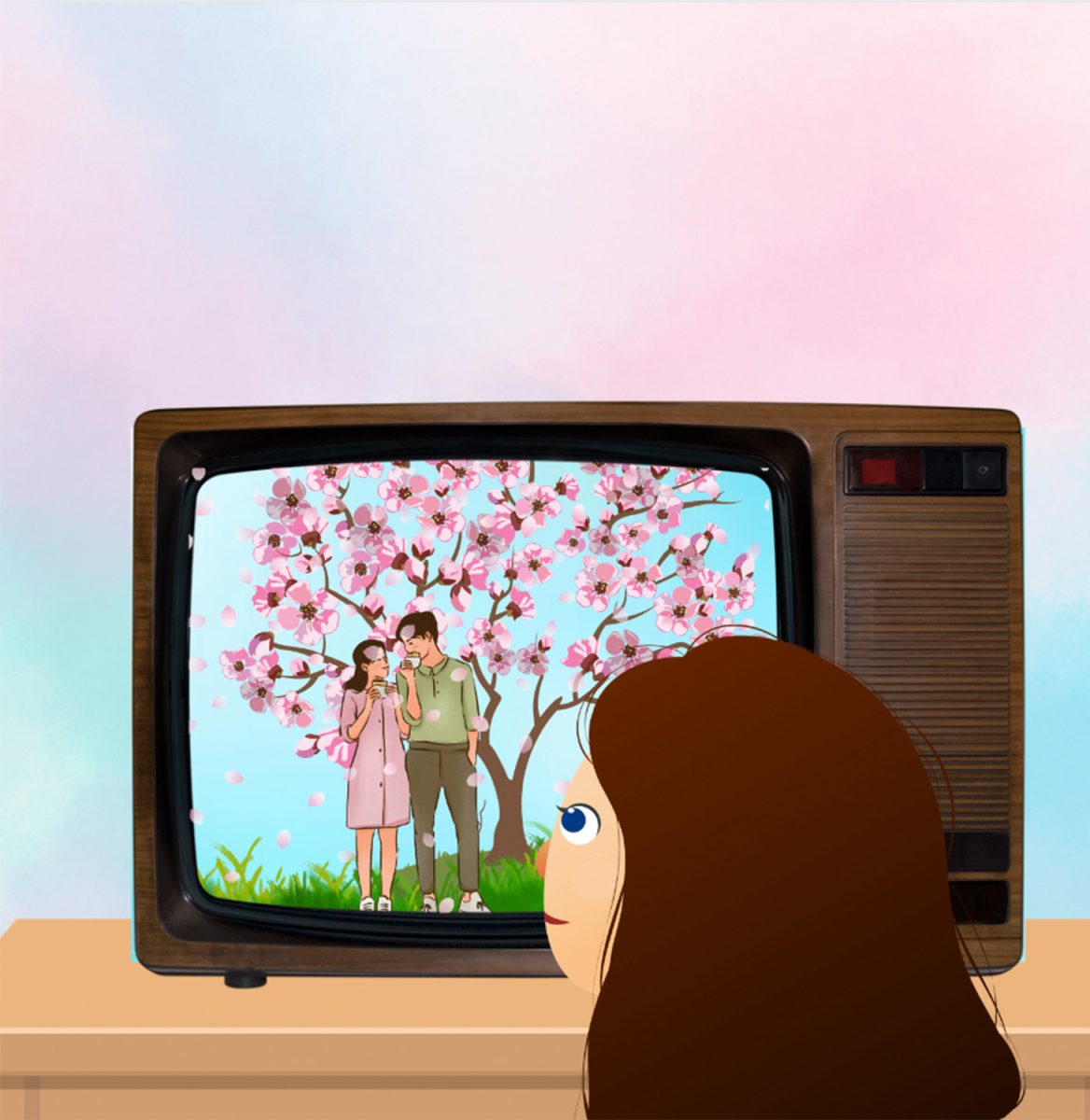From classic rom-coms to modern-day romance novels, the world has been captivated by tales of love and the many forms it can take. But they can also be stereotypical and one-dimensional, portraying high school life as a world where everything revolves around love and romance. They often convey the message that finding the perfect partner is the most important thing a teenager can do in their teenage years and that you have to be popular to be in a relationship. In shows like “Never Have I Ever,” “Gilmore Girls” and “Ginny and Georgia,” the main characters often choose to sacrifice academic opportunities or shirk their responsibilities in favor of romantic relationships.
“Most teen rom-coms specifically focus on how romance is a main aspect of high school,” said Ari Braverman ‘27. “And the expectation to get into a relationship sort of defeats the purpose of actually finding a genuine relationship.”
Braverman believes that young adult (YA) romance media also creates a false narrative about how teenagers should only spend their time pursuing love. “I do want to be in a relationship in high school, but I don’t want to put it above other things that are important to me, like friendship and school,” he said.
In YA novels like “Shatter Me,” “To All The Boys I Loved Before” and “Love and Gelato,” gendered stereotypes can be very prominent, and long-time partners are often thrown aside in favor of someone new.
“It’s almost stigmatized to be in a stable relationship because it’s uninteresting,” said Stella Reynaga ‘24. “I think there were a lot of very traditional gender roles in the books that I read.”
“I think that [the novels I read] had an impact on the way that I originally saw gender roles and relationships and in the same vein, it also discouraged me a bit from wanting to be in a relationship,” added Reynaga.
Popular teen movies and TV shows like “Mean Girls” or “Gossip Girl” often present an image of a social hierarchy where the most popular teens rule the world, and every high school student’s main goal is to be so well-liked that they can be in a romantic relationship with a popular person. This also creates the idea that popular people cannot be friends or romantically involved with someone who is not popular.
“Friendships that I see on TV, they make it feel like you have to choose one [social group] or the other,” said Braverman.
The reality is that high school is a complex and diverse environment where students come from different backgrounds, cultures and experiences. Friend groups, cliques and other relationships can be shaped by a variety of factors. “In real life…. there [are] less clear lines between friend groups,” said Braverman.
The representation of high school romance in the media can also romanticize toxic relationships. According to an article in The Atlantic by Megan Garber, many rom-com plots revolve around gamified manipulation. “She says she’s not interested; he assumes she’s lying.” Garber wrote.
The glorification of these toxic relationships can affect Urban students too. “I expected [that kind of relationship] during middle school, prior to starting high school, as well as my first few years of Urban,” said Reynaga.
“There was always the whole trope of the guy never being interested and the girl having to try really, really hard in their relationship and overcompensate,” she said. “I think I’ve since learned that relationships, for the most part, really aren’t like that.”
According to Reynaga, not basing information and assumptions on the media has made a positive difference. “Having friends [who are in] stable, loving relationships and getting to see that and understand that new perspective really shifted the way that I experienced relationships.”


